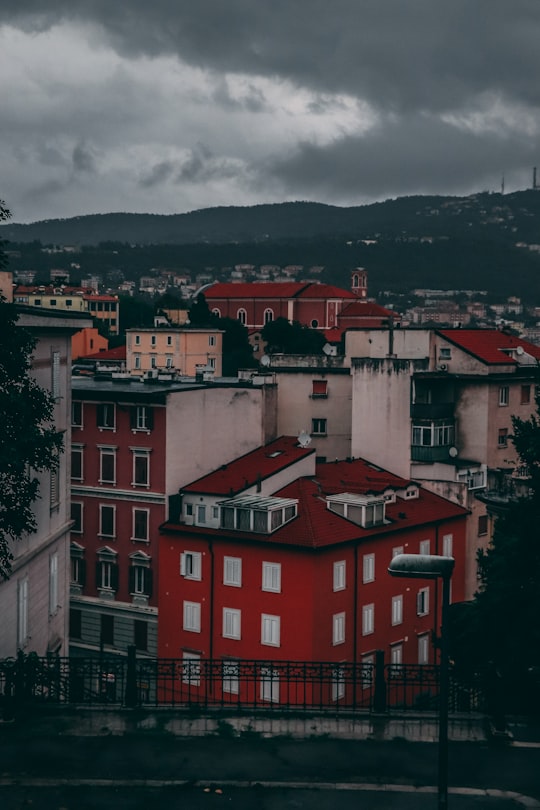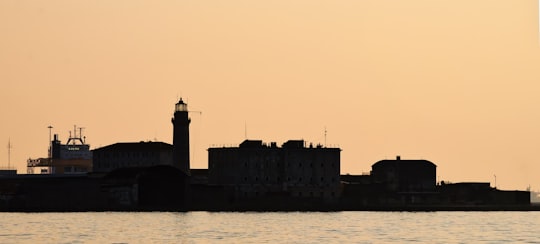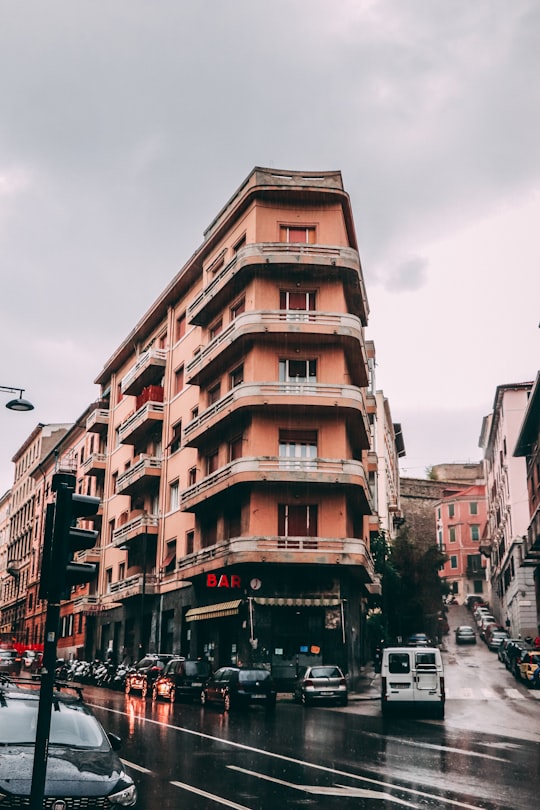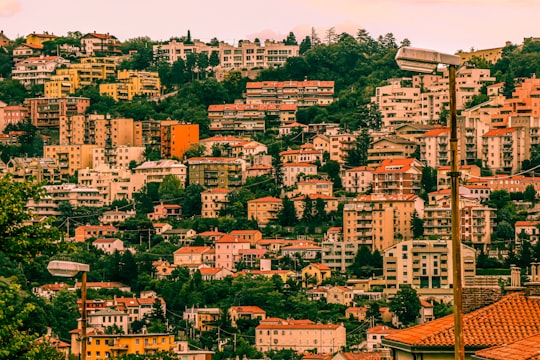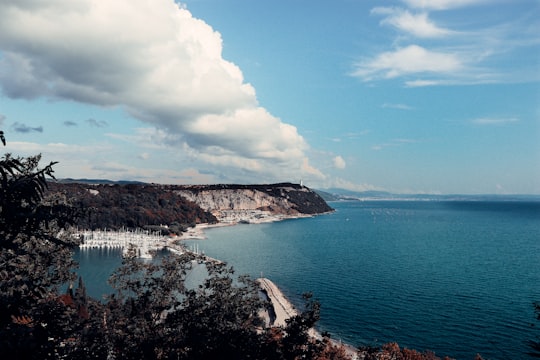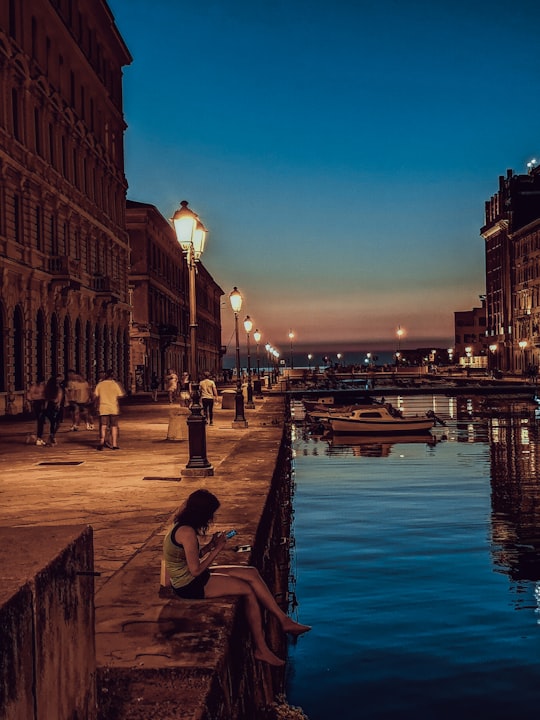Travel Guide of Trieste in Italy by Influencers and Travelers
Trieste is a city and a seaport in northeastern Italy. It is situated towards the end of a narrow strip of Italian territory lying between the Adriatic Sea and Slovenia, which lies approximately 10–15 km south and east of the city.
Download the Travel Map of Italy on Google Maps here
The Best Things to Do and Visit in Trieste
TRAVELERS TOP 10 :
- Province of Trieste
- Miramare Castle
- Bike Tours in Koper
- Grotta Gigante
- Pinewood of Barcola
- Scuba Diving in Koper
- James Joyce statue
- Rilke trail
- Tours & Sightseeing | Miramare Castle
- Peninsula near Duino Castle
1 - Province of Trieste
The Province of Trieste was a province in the autonomous Friuli-Venezia Giulia region of Italy. Its capital was the city of Trieste. It had an area of 212 square kilometres and it had a total population of 234,668. It had a coastal length of 48.1 kilometres. There were 6 communes in the province.
Learn more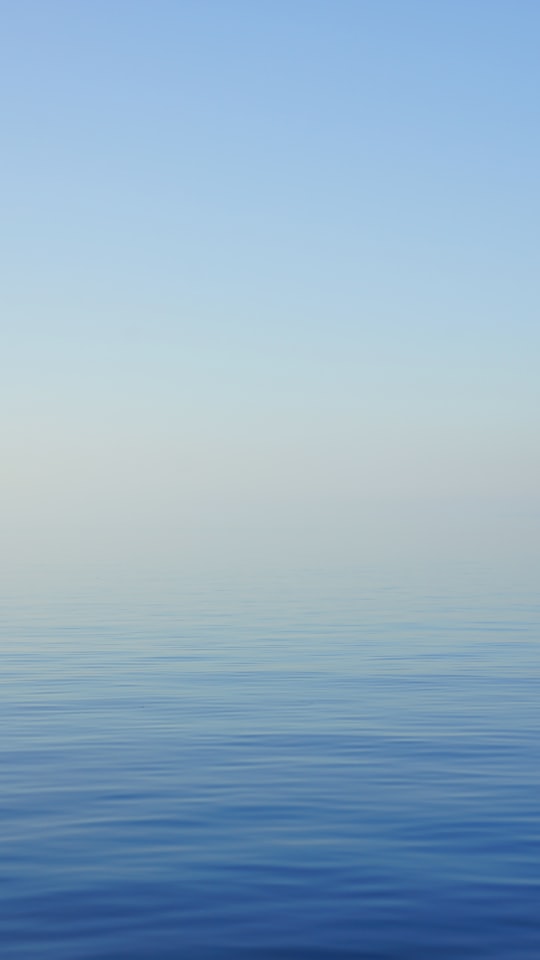
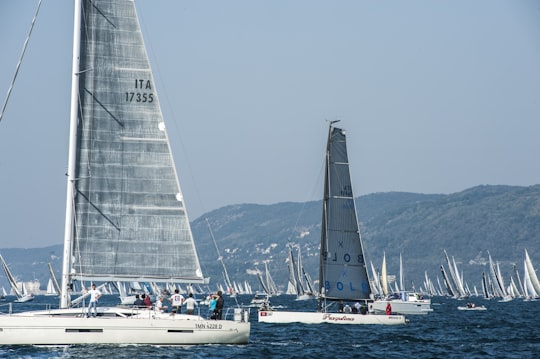
2 - Miramare Castle
7 km away
Miramare Castle is a 19th-century castle direct on the Gulf of Trieste between Barcola and Grignano near Trieste, northeastern Italy.
View on Google Maps Book this experience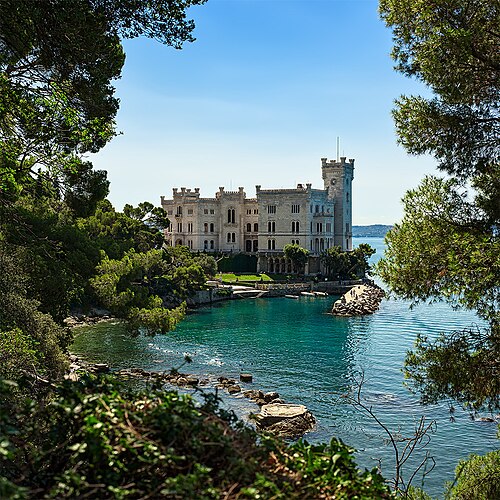
3 - Bike Tours in Koper
12 km away
Come and bike along the historic Parenzana Biking trail from Koper all to way to the spectacular town of Portoroz. Parenzana is an old narrow-gauge railway between Trieste, Italy and Poreč, Croatia, since been converted into a recreat...
Book this experience
4 - Grotta Gigante
7 km away
Grotta Gigante, also known as Riesengrotte or as Grotta di Brisciachi, is a giant cave on the Italian side of the Trieste Karst, close to the village of Borgo Grotta Gigante or Briščiki in the municipality of Sgonico.
View on Google Maps Book this experience
5 - Pinewood of Barcola
Learn more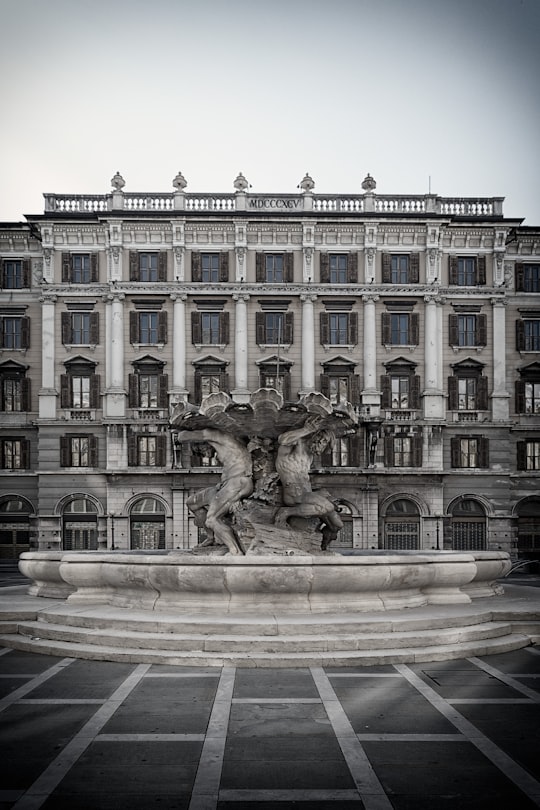
6 - Scuba Diving in Koper
20 km away
Discover the rich underwater life of the Adriatic Sea on a beginner's PADI scuba diving course in Piran, near Koper! PADI stand for Professional Association of Diving Instructors and it is the most recognized dive training organization in the wo...
Book this experience
7 - James Joyce statue
Learn more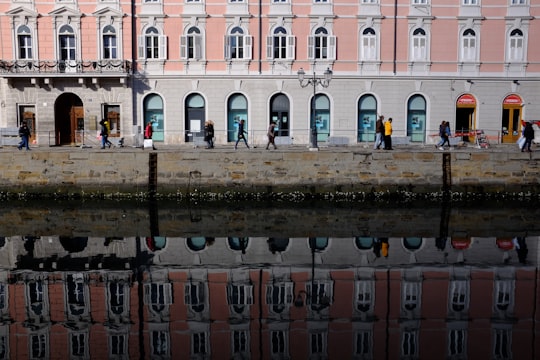
8 - Rilke trail
18 km away
The Rilke trail is a tourist trail, providing a scenic view of the Gulf of Trieste. It is named after the poet Rainer Maria Rilke. It connects the villages of Duino and Sistiana, both in the municipality of Duino-Aurisina.
Learn more Book this experience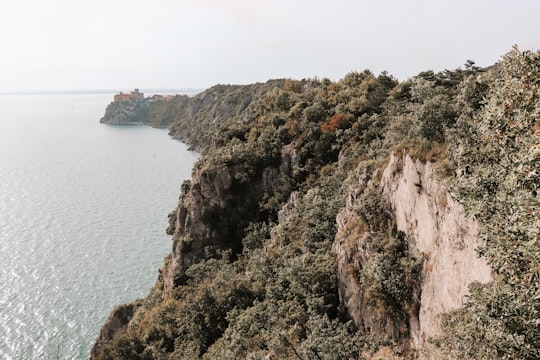

9 - Tours & Sightseeing | Miramare Castle
7 km away
Discover the magic of Trieste, a city that beautifully matches history, culture, and natural allure. Stroll along the antique Canal Grande, ascend to Castello di San Giusto for astonishing views, and soak in the wonder of Piazza Unità d'Italia, Europe's sprawling seafront square. Jump into a cultural whirlpool at the Civic Museum of Oriental Art and the Revoltella Museum or descend into the literary depths at the James Joyce Statue. Seek peace at the Miramare Castle and the Victory Lighthouse, and witness religious diversity at the San Giusto Cathedral, Sant'Antonio Taumaturgo Church, Serbian Orthodox Temple, and Synagogue. Ignite the curiosity at the Science Center Immaginario Scientifico, and let the Trieste Sea Museum's wonders take you away.
Book this experience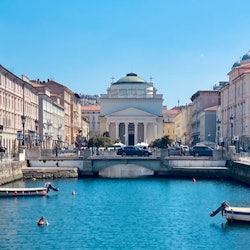
10 - Peninsula near Duino Castle
18 km away
Learn more
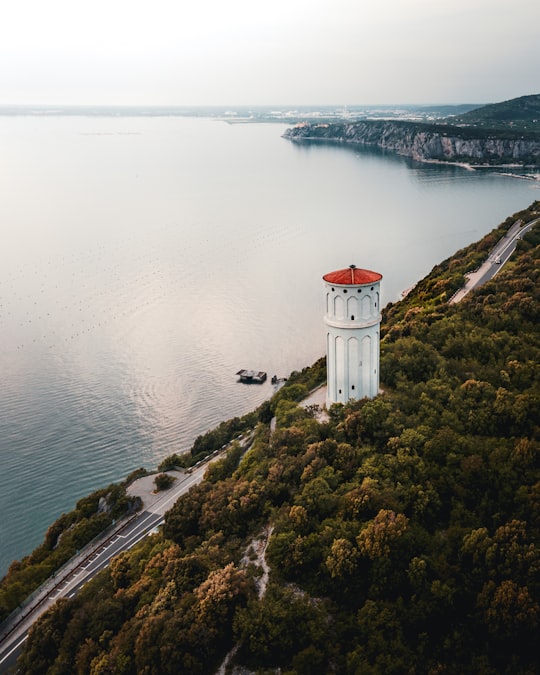
11 - Duino
19 km away
Duino is today a seaside resort on the northern Adriatic coast. It is a hamlet of Duino-Aurisina, a municipality of the Friuli–Venezia Giulia region of northeastern Italy.
Learn more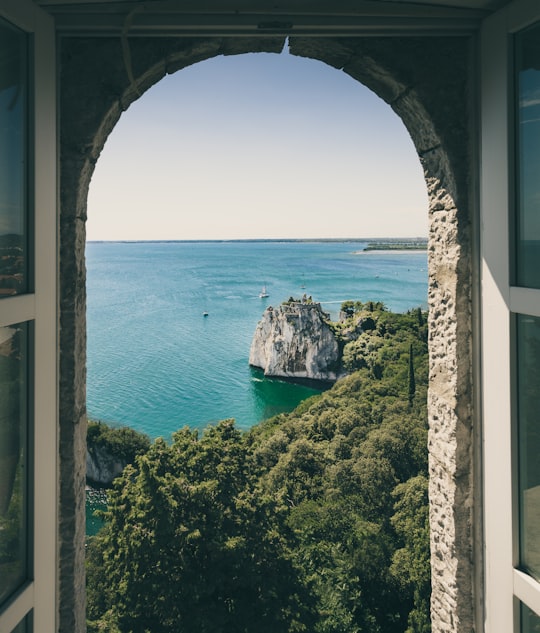
12 - Walls of Piran
21 km away
The Walls of Piran are the city walls of Piran, a coastal town on the Adriatic Sea in southwestern Slovenia. Significant parts of the fortification walls remain well-preserved.
Learn more Book this experience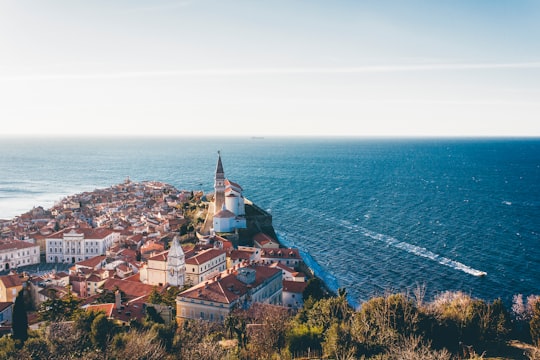

13 - Grado
30 km away
Grado is a town and comune in the north-eastern Italian region of Friuli-Venezia Giulia, located on an island and adjacent peninsula of the Adriatic Sea between Venice and Trieste.
Learn more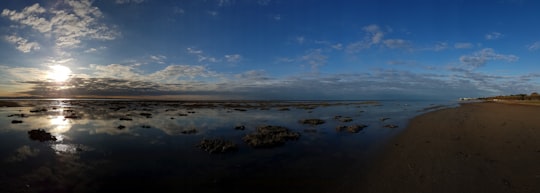
Disover the best Instagram Spots around Trieste here
Book Tours and Activities in Trieste
Discover the best tours and activities around Trieste, Italy and book your travel experience today with our booking partners
Pictures and Stories of Trieste from Influencers
9 pictures of Trieste from Alberto Cocchi, Joshua Rondeau, Mirto Time and other travelers
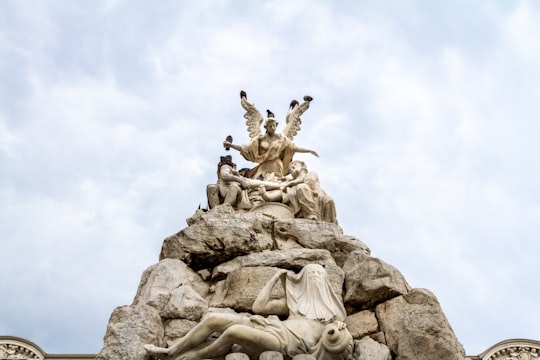
- Sculpture in Trieste, Italy. ...click to read more
- Experienced by @Dimitry Anikin | ©Unsplash
Plan your trip in Trieste with AI 🤖 🗺
Roadtrips.ai is a AI powered trip planner that you can use to generate a customized trip itinerary for any destination in Italy in just one clickJust write your activities preferences, budget and number of days travelling and our artificial intelligence will do the rest for you
👉 Use the AI Trip Planner
Why should you visit Trieste ?
Travel to Trieste if you like:
🗼 LandmarkLearn More about Trieste
Trieste is the main city of the Friuli-Venezia Giulia region in north-eastern Italy. A port city, it occupies a narrow strip of land between the Adriatic coast and the Slovenian border, on the Carso limestone plateau. Trieste's architecture, which includes a medieval old town and a neoclassical Austrian quarter, reflects its Italian, Austro-Hungarian and Slovenian influences.
It is the capital of the autonomous region of Friuli-Venezia Giulia and of the province of Trieste and has a population of about 200,000, known as the Triestines.
Trieste, as a border city and open to the sea, has the character of a city of important port trade, becoming one of the largest ports in the Mediterranean. The port activity was greatly reduced during the inter-war period, but it is still very present in the maritime station and in the various port facilities in the north and south of the city.
As the only city in the Austro-Hungarian Empire open to the Mediterranean Sea, it was the main access for many goods from overseas.
The city of Trieste has places of worship for most religions. At the turn of the 20th century, Trieste was a city with strong minority religious communities: Greek and Serbian Orthodox, Armenian, Protestant (Lutheran, Reformed, Waldensian and Anglican) and above all the Jewish community, which had a significant economic, political and cultural influence.
Frequently Asked Questions by Travelers planning a trip to Trieste
On 3 November 1918, at around 4 p.m., a flotilla of four Italian destroyers emerged from the fog and entered the Austrian port of Trieste before an enthusiastic crowd. Several thousand men disembarked under the command of General Carlo Petitti di Roreto, who had been appointed military governor of the Veneto Giulia region and Istria. He announced that victory was assured and that the war was over.
Port of Trieste is located near the Corderie, and close to Parco Orlandini.
Where to Stay in Trieste
Discover the best hotels around Trieste, Italy and book your stay today with our booking partner booking.com
More Travel spots to explore around Trieste
Click on the pictures to learn more about the places and to get directions
Discover more travel spots to explore around Trieste
🗼 Landmark spots 🏘️ Town spots 🚢 Dock spots 🌊 Ocean spots 🏖️ Sailing spots ⛰️ Cliff spots 🐾 Wildlife spots 🏖️ Coast spotsTravel map of Trieste
Explore popular touristic places around Trieste
Download On Google Maps 🗺️📲
